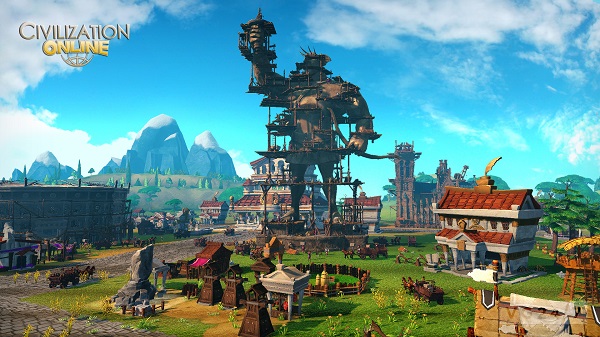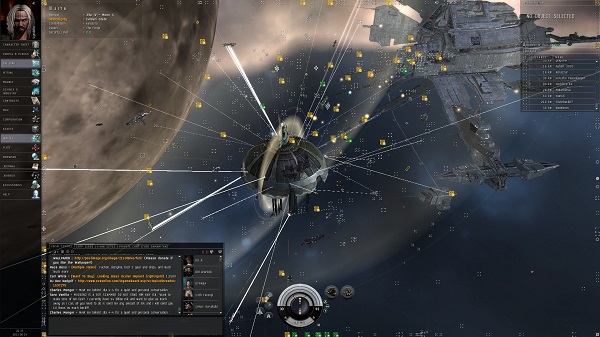
XL Games recently announced Civilization Online, a massive online multiplayer version of the classic turn based strategy game. Except that it’s not going to be turn based; or a strategy game. It isn’t the first MMO to try to bring a third person experience to an RTS game, and one could pardon them for trying. It’s a huge business that could potentially bring in millions. Plus, it only occasionally alienates the entire player base.
Continues after the break
World of Warcraft is the quintessential MMORPG, but it’s more than just that. Most of the news these days is about the number of players that are leaving the game, yet there are still over 7 million players; each paying $15 a month to keep playing. The substantial income from this game has allowed Blizzard to take their time in developing other games. Case in point, there was at least one release annually from the company every year until the launch of WoW in 2004. Since then it has slowed to one new release every 3 to 4 years.

Other companies have tried to mimic this success. Star Wars: The Old Republic and Dungeons & Dragons Online both arrived a little late to capitalise on the subscription model, but have managed to stay afloat by converting to the more popular free to play model.
Advocates of the F2P model believe that it allows developers to reach a greater number of players. Raph Koster, founder of Metaplace, believes that people who would not pay $15 for a subscription might still be compelled to spend a small amount every now and then.
In one way it makes the game easier to buy into for players who work long hours and cannot afford to invest the same amount of time as other players. This works best with games that allows items bought with real money to be crafted or dropped during the course of regular gameplay. In other words, players pay for convenience instead of power. League of Legends and World of Tanks both have good examples of how to build on this sort of F2P model.

That being said, running on a F2P model doesn’t always work out. Space simulator Eve Online tried to introduce microtransactions to the game in 2011. It didn’t end well. The Eve community is unlike anything else found in MMOs, and players staged large scale in-game riots. Massive numbers of ships moved in to block commerce centres bringing the game economy to a screeching halt. Developer CCP Games eventually removed the feature and learnt a valuable lesson about their customers.
Others weren’t so lucky. Age of Empires Online had the makings of another hit game. Initial reviews weren’t too bad either. Except that the artwork and style of the game didn’t look or feel like Age of Empires, and the free parts of the game were extremely limited. Unsurprisingly, it didn’t take off. The game passed from one company to another before Microsoft decided that it wasn’t worth producing new content.
Nobody is really sure why so many western MMOs fail. Strauss Zelnick of Take Two Interactive believes that it all depends on where it gets published. Essentially, if an MMO is targeted at the United States it will be on a fast track to oblivion. Although, it should be noted that many publishers in the land of opportunity count moving to a free to play model as failure. Despite that games like SW:TOR and Lord of the Rings Online still producing new content and having a decent player base.

Perhaps Zelnick’s statement could be amended to mean that subscription based MMOs are doomed to fail in America. Which doesn’t bode well for the upcoming Elder Scrolls Online, or Final Fantasy XIV: A Realm Reborn.
Which brings us back to Civilization Online. A MMO which will be free to play and released in South Korea. Without knowing what this particular free to play model will be we can assume that it will follow the pay-money-for-awesome-stuff model. In theory, this has most of the ingredients to be successful. Provided that the game itself isn’t a bug ridden abomination.
Follow us on Instagram, Facebook, Twitter or Telegram for more updates and breaking news.


